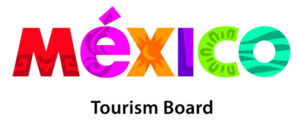
The wedding industry is massive, to say the least. The Canadian wedding industry is worth $5 billion a year, and the global industry is worth $298 billion. But, if you’re already in the industry, you likely know how great it can be during peak season, and how slim it can be other times throughout the year.
So, what’s the best way to manage cash flow during those ups and downs? How can you make sure you’re doing just as well, financially, at the height of wedding season as you are in the dead of winter when few people are tying the knot?
Let’s cover a few tips you can use to allocate resources during high-revenue periods while making sure you can remain financially stable during off-peak times to ensure your business remains sustainable throughout the year.
The Shifting State of the Wedding Industry
In addition to the seasons, there are other factors that can create more long-term shifts in when, how, and where people get married. For example, many people consider things like weather and climate, their financial situations, or even customs and cultural norms before deciding how to plan their wedding.
Society, as a whole, has also started to shift in terms of how marriages – and even romance – should work. Gen Z, for example, is changing the narrative when it comes to love and marriage.
This young generation is postponing marriage longer than previous generations for a variety of reasons. Many young couples want to achieve financial stability and independence before tying the knot, while others are deciding not to get married at all. They would rather just stay in a long-term and committed relationship without making it official.
Those who are getting married have different ideas on traditions, as well. Weddings might be smaller, more informal, and less expensive. Working in the industry, you have to be willing to adapt your business to these changing mindsets if you want to stay afloat. Some of the best ways to attract Gen Zers or anyone who might want a smaller, more affordable wedding include:
- Offering special off-season discounts;
- Offering add-ons;
- Expanding to other areas of event planning;
- Offering coordination services leading up to the wedding.
Offering different add-ons can help couples feel like they’re getting more “bang for their buck” as they’re planning their special day. It’s a great way to keep your business steady, even through off-peak seasons.
These different ideas and definitions have already made an impact on what is considered peak and off-peak seasons. For example, many people stereotypically think the most popular season to get married is in the summer. You might be surprised to learn that in Canada, fall and winter take the cake. Couples can often find venues at a lower price and can utilize nature’s beauty as a wonderful backdrop for their big day. When you shift how you look at the seasons and their popularity, you can market your services accordingly.
Plan Ahead
The easiest way to get through the slower season is by setting aside some of the money that you earn during peak wedding times. You could dedicate a percentage of your profits, or have a monetary savings goal in mind.
You can also plan ahead for reduced cash flow by supplementing your income. In the wedding planning industry, it might include party planning, decoration services, or even working with local bakeries or restaurants to cross-promote each other’s businesses. For instance, eateries have customers all year long. Being able to have your name and reputation connected with some popular dining spots can make a big difference, and can get people thinking about wedding planning even during the less popular times of year. Keep in mind too that being a great wedding planner also involves having good organizational skills and attention to detail, so you can apply these strengths to administrative, promotional, and other event planning work.
By using the off-season to network with vendors and other professionals that make sense for your industry, you’ll do more than just stay afloat, financially. You’ll be able to grow your business throughout the year.
Utilize Technology
You can use technology to help you plan for financial uncertainty. Things like data analysis can improve everything from your marketing efforts to your budget. Real-time financial reporting is a game changer for any business owner. It allows you to make strategic adjustments and change your budget as needed. Simply put, you won’t be in the dark anymore when it comes to your financial projections, so you can make changes on the fly to ensure your business stays in the black.
Thankfully, there are plenty of ways to manage and maintain cash flow as a wedding planner, no matter the season. If you’re willing to be flexible and adopt a growth mindset, there’s no reason why you can’t enjoy success and stability year-round.







Leave a Reply